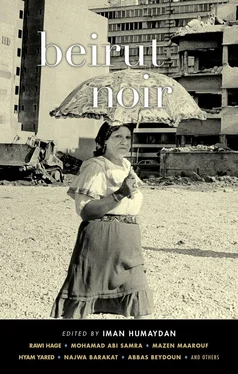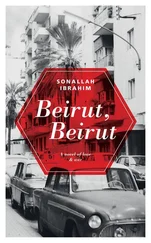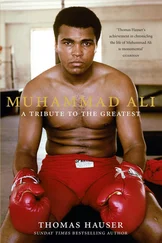Dedicated to the memory of Bachir Hilal (1947–2015)

Introduction
Violence of Loneliness, Violence of Mayhem
Beirut is a city of contradiction and paradox. It is an urban and rural city, one of violence and forgiveness, memory and forgetfulness. Beirut is a city of war and peace. This story collection is a part of a vibrant, living recovery of Beirut. Beirut Noir recovers the city once again through writing, through the literary visions of its authors.
Assembling this collection was an ambitious experiment for me; editing it was fascinating and full of challenges. It is by no means easy to bring together a book of fifteen short stories by writers with such different perspectives on Beirut. Fourteen Lebanese writers, and one Palestinian writer born and raised in Beirut, contributed to the book you are holding today. Taken together, their stories reflect the city’s underworld and seedy realities. Each story is only one tiny piece of a larger mosaic; they all coalesce here to offer us a more complete picture of the city.
There are so many clichés we must confront when examining Beirut. It is difficult to write about it without describing it as a city that never sleeps, as the center of life, and also as a city that is the companion of death. These two descriptions are inextricably linked, though they may seem contradictory. Those of us who live here and know the city well recognize these powerful characterizations that we hold in our collective imagination. Elsewhere, I once described Beirut as “the city that dances on its wounds.”
We know that Lebanon is a country with a long and rich history of diverse cultures and religious traditions, as well as a wealth of languages. Every school in Lebanon teaches three languages — Arabic, English, and French; I kept this trilingual background in mind when choosing the stories for this collection. Michelle Hartman, who has previously translated two of my novels, meticulously translated these stories from both Arabic and French into English; there are also three stories originally written in English.
From within this collection of stories, a general attitude toward Beirut emerges: the city is viewed from a position of critique, doubt, disappointment, and despair. The stories reveal a vast maze of a city that can’t be found in tourist brochures or nostalgic depictions that are completely out of touch with reality. Perhaps this goes without saying in a collection of stories titled Beirut Noir . But the “noir” label here should be viewed from multiple angles, as it takes on many different forms in the stories. No doubt this is because it overlaps with the distinct moments that Beirut has lived through.
All of the stories are somehow framed by the Lebanese civil war, which lasted from approximately 1974 until 1990. The war here serves as a boundary between the memories of the authors and the memories of their characters. Indeed, whether the stories include time frames during, before, or after the war, all of them invoke this period somehow — even if only to recall other times of which nothing remains.
Some of the stories explore the memory of people wounded by Beirut during the war, who have not yet healed. These works include Mohamad Abi Samra’s “Without a Trace,” Leila Eid’s “Beirut Apples,” Marie Tawk’s “Sails on the Sidewalk,” Abbas Beydoun’s “The Death of Adil Uliyyan,” Bachir Hilal’s “Rupture,” and Hala Kawtharani’s “The Thread of Life.” Other stories are told by new and fresh voices born amidst the violence of this war. These brim with playfulness within their dark visions, such as Hyam Yared’s “Eternity and the Hourglass,” Najwa Barakat’s “Under the Tree of Melancholy,” and “Dirty Teeth” by a young author writing under the name of The Amazin’ Sardine. Some suggest the complexities of class issues in a society marked by sectarianism, like Tarek Abi Samra’s “The Bastard” or Mazen Maarouf’s “The Boxes.”
While the tales might be playful, the characters’ lives can be unstable, and they often have no confidence whatsoever in the future. Despite this, we laugh darkly while reading Bana Beydoun’s “Pizza Delivery” — its melancholia takes us right to the limit of what we can find humorous. This is also true of Rawi Hage’s “Bird Nation,” as well as the stories by Hyam Yared and Bachir Hilal. Beirut is like that. So much gloom and wasted lives; we weep even as we laugh. In Beirut, chaos is a way of life.
This is not all there is to Beirut though. The city is still crowded and on the move; indeed, it can be boisterous at night. But these crowds and mayhem are not the same as those during the day. Beirut nights are different. It’s as if in the absence of day, the city is freed from its severity. Nighttime somehow softens its harshness and anxiety; the city can be seen in its lights reflecting off the sea, its expansive sweep under the nearby mountains, and its truly beautiful vistas. The contributions from Bana Beydoun and Mazen Zahreddine offer portraits of the city at night, through the lives of young people born after the war. This is a Beirut where the violence of loneliness and the violence of mayhem come together.
Chaos reigns here — it is the source not only of violence but also the diversity and dynamism of every aspect of the city. Most stories in the collection confirm this — but especially those by Rawi Hage, Zena el Khalil, and Alawiya Sobh.
And yet time is precious in Beirut. Hyam Yared’s story, centered around an hourglass, is a reflection of the fear people have of time flowing through our fingers and being lost, just as Lebanese people lost fifteen years of their lives during the civil war.
Through the eyes of the dead child who is the eponymous narrator of el Khalil’s “Maya Rose,” we see a panoramic scene of Beirut’s coastline from above the Corniche by the lighthouse and beyond. This story, like the entirety of Beirut Noir , allows us to glimpse beautiful things in Beirut, even as it wakes and sleeps in violence and disorder.
Beirut lives through time, always oscillating between war and peace; these moments make Beirut Noir ’s scenery as naked as the edge of a knife.
Iman Humaydan
Beirut, Lebanon
September 2015
Part I
When Time Does Not Exist
The Bastard
by Tarek Abi Samra
Chiyah
They were born on the same night, of the same father but different mothers.
That day, unusual disorder in the hospital meant that they were confused with one another. When their progenitor grumpily leaned over to examine this pair of twisted-up, crying red faces, he hesitated for a moment — they definitely resembled him, but not their mothers. Then, deciding at random, he designated which was to be the bastard with one disdainful gesture of his hand.
One was the offspring of his wife, a sickly woman who died in childbirth. The other was the maid’s, a beautiful young peasant woman who was vigorously healthy. Thanks to his many ties to the ministry, he was able to get both children recognized as legitimate. Nonetheless, at home each one forever occupied the position assigned to him by that paternal gesture.
As children, they liked each other well enough and often played together, but at the same time they were jealous of one another for completely opposite reasons.
From the most tender of ages, the so-called bastard was aware of the total dishonor of his status; his mother’s smiling eyes hardly compensated for the contemptuous pity, mixed with slight disgust, that he inspired with every look from a friend or stranger. He experienced this contemptuous pity viscerally: he experienced it like a cramping in his abdomen; he experienced it like an urgent need to vomit.
Читать дальше













